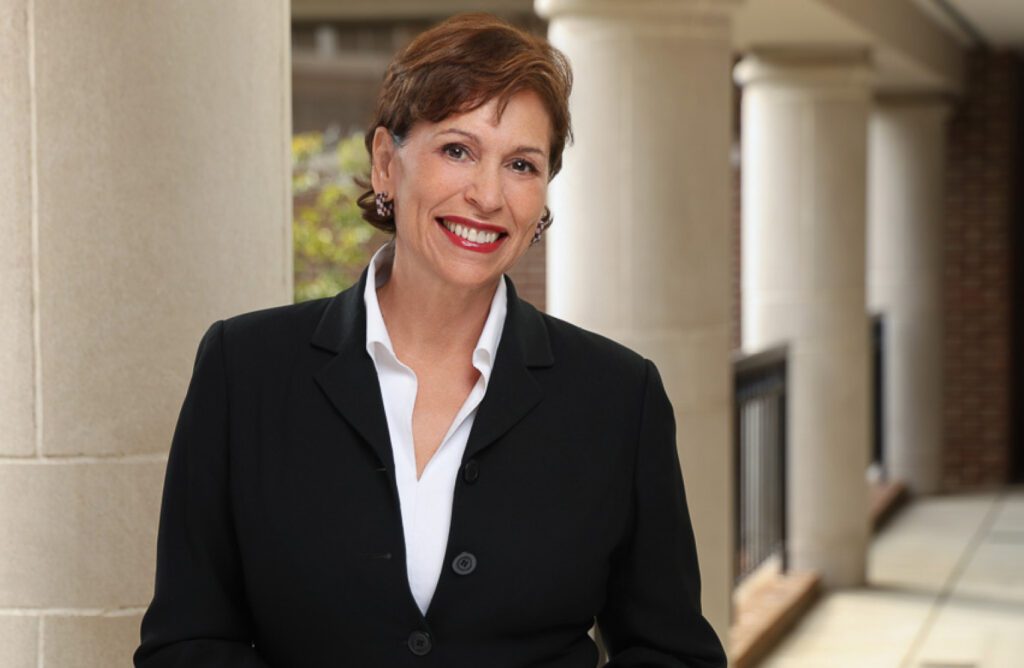
Maria Savasta-Kennedy, George R. Ward Term Professor in the UNC School of Law, on Carolina Law’s advocacy for safer drinking water in North Carolina.
Maria Savasta-Kennedy is a clinical professor of law, whose teaching focuses on environmental law and experiential learning opportunities for students.
She has worked on clean water issues for many years, and in 2017 she helped start the NC Well Water Working Group initiative. For the past seven years, Carolina Law students, under Savasta-Kennedy’s leadership, have worked to close the gap in real estate disclosure requirements. Their goal is clear: protect North Carolinians from unknowingly buying properties with unsafe water.
How has Carolina Law worked to address well water safety issues in the state?
SAVASTA-KENNEDY: The law school initially became involved in this project about seven years ago through an attorney at Carolina Law alumnus Brian Brice’s law office. Their clients had purchased a home with water supplied by a private well. It turned out that the water in the home was contaminated and wasn’t drinkable. The family had a new baby and were in a tough spot. Changing the water supply or remediating the well was going to be very expensive, and they ended up moving out of the home. This situation highlighted a widespread problem: there is no requirement under state or federal law that says when you sell a house with a private well, that well should be tested to make sure it is not contaminated.
I think most of us assume that when you turn on your tap, the water that comes out will be safe to drink. But in North Carolina 25% of people are on private well water, and most federal and state water safety regulations, including the Safe Drinking Act, don’t cover private wells. We started a pro bono project to try to address this issue, focusing on the lack of disclosures about private well water quality in real estate transactions. Carolina law students researched what type of protections exist for people on well water in the state, including renters, comparing the safeguards in North Carolina to other state’s requirements, and looking at available funding for well water testing and remediation. We began advocating for a new set of questions on the state’s required real estate disclosure form that would obligate sellers to test their property’s drinking water well before the sale of the property and to provide potential buyers with the test results.
We have worked closely with our colleagues in the UNC Gillings School of Global Public Health and the Institute for the Environment who are testing private wells for contamination and leading the initiative for clean well water across the state. For UNC Law students, working on this initiative has been a great opportunity to understand the state’s clean water laws and provide recommendations to policymakers to address well water safety issues in the state. It has also given students an opportunity to apply their legal training to a complex, real-world issue, and to learn how to clearly communicate the issue to the general public.
A major victory occurred on July 1, 2024, when the North Carolina Real Estate Commission implemented a new requirement for residential property disclosure statements. While not yet requiring sellers to test their wells before listing their property, sellers must now indicate whether a property’s well water has ever been tested for quality, quantity and pressure, and provide the date of the most recent test. This is a significant change that should put buyers on notice that they should not assume that their well water will be safe to drink. Hopefully it will make people pause and think, “Wait, has this well water been tested? I want to see those results before purchasing this property.”
Term professorships support renowned scholars and propel research at Carolina. These privately funded endowments help attract and retain the academic leaders of today, ensuring a state-of-the-art education for all Tar Heels.
As told to Audrey Smith ’10
Related Stories




